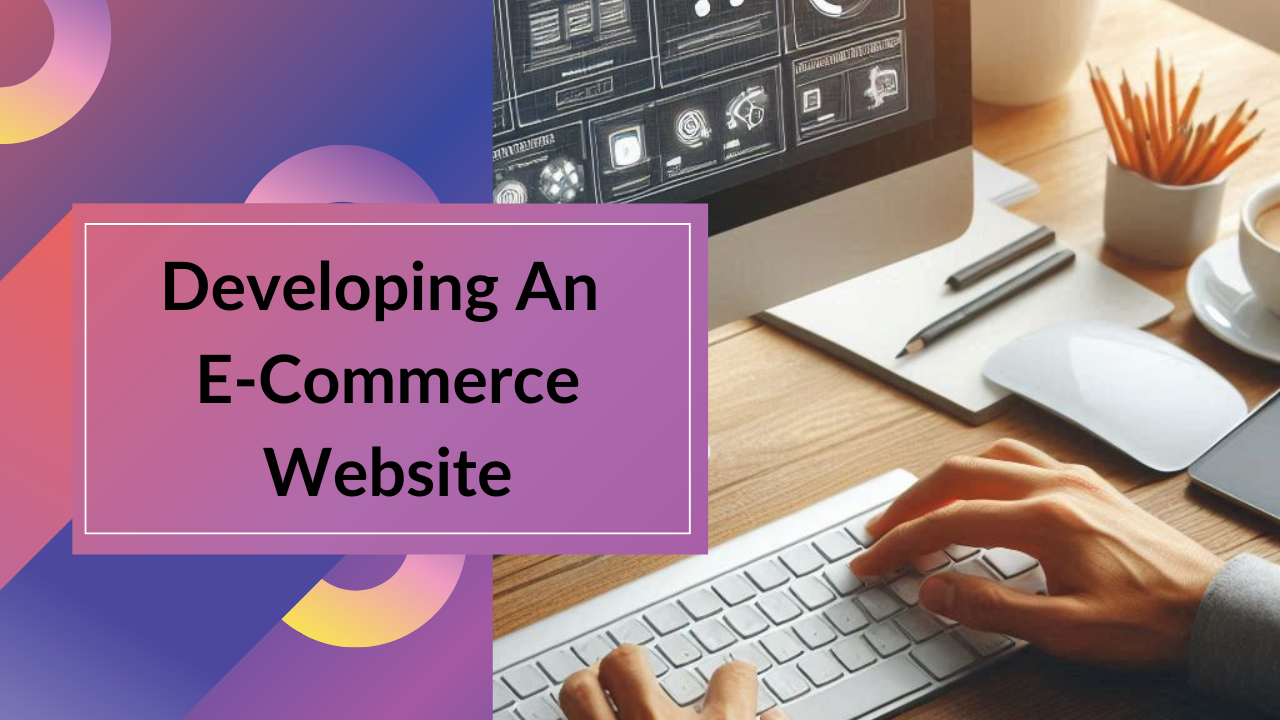Developing An E-Commerce Website
In today’s digital age, developing an e-commerce website is essential for businesses looking to expand their reach and maximize revenue potential. With the surge in online shopping, having a robust online presence is crucial. This guide covers the essential steps and considerations for creating a successful e-commerce website.
Understanding E-Commerce
E-commerce, or electronic commerce, refers to buying and selling goods and services online. This business model offers unparalleled convenience, broader market access, and lower operational costs. Understanding e-commerce’s fundamentals is the first step in developing an effective website.
Market Research
Before diving into technical aspects, conduct thorough market research. Identify a profitable niche by looking for market gaps or unmet needs. Tools like Google Trends and Keyword Planner can help gauge demand for specific products or services.
Business Planning
A solid business plan serves as a roadmap for your e-commerce venture. It should outline business goals, target audience, marketing strategies, and financial projections. This plan helps secure funding and guides you through business development stages.
Choosing The Right Platform
Selecting the right e-commerce platform is critical. Options like Shopify, WooCommerce, Magento, and BigCommerce offer unique features. Consider ease of use, scalability, customization, and cost. For example, Shopify is user-friendly, while WooCommerce offers extensive customization for WordPress users.
Website Design
An intuitive and aesthetically pleasing design is vital. Focus on user experience (UX) by ensuring easy navigation, fast loading times, and a clean, professional look. Implement design principles that highlight products effectively and make the checkout process seamless.
Mobile Optimization
With significant online traffic from mobile devices, optimizing your e-commerce website for mobile users is essential. A mobile-friendly site enhances user experience and boosts search engine rankings. Ensure your design is responsive and adjusts seamlessly to different screen sizes.
Domain Name And Hosting
Choose a memorable, relevant, and easy-to-spell domain name. Avoid numbers or hyphens and opt for a .com extension if possible. Reliable hosting is also crucial for ensuring your website is always accessible.
Secure Web Hosting
Select a hosting provider with robust security features, excellent uptime, and scalable options. Popular choices include Bluehost, SiteGround, and HostGator. Look for features like SSL certificates, daily backups, and DDoS protection.
Website Development
Developing an e-commerce website involves front-end and back-end development. The front-end includes layout, design, and navigation, while the back-end covers server-side operations and databases. Use HTML, CSS, JavaScript for the front-end, and PHP, Ruby, Python for the back-end.
Essential E-Commerce Features
Include essential features like a shopping cart and secure payment gateway. The shopping cart allows customers to select products and checkout, while the payment gateway processes payments securely. Popular gateways include PayPal, Stripe, and Square.
Product Management
Effective product management is key. Use a robust inventory management system to track stock levels and manage orders. Ensure product listings are detailed, with high-quality images, thorough descriptions, and customer reviews to enhance the shopping experience.
Content Management
Engaging content drives traffic and builds trust. Regularly update your blog with relevant articles, industry news, and tips. Use content marketing strategies to connect with your audience, improve SEO, and establish your brand as an authority.

SEO For E-Commerce
SEO is crucial for driving organic traffic. Implement on-page strategies like optimizing product titles and descriptions with relevant keywords. Off-page SEO involves building backlinks, engaging in social media marketing, and participating in forums.
Marketing Strategies
Effective marketing is essential for attracting and retaining customers. Email marketing campaigns can reach your audience with personalized offers and updates. Social media marketing on platforms like Facebook and Instagram allows you to engage with your audience and promote products.
Customer Service
Exceptional customer service sets your business apart. Offer multiple support channels, including live chat, email, and phone support. Implement a comprehensive FAQ section and ensure clear return and refund policies.
Analytics And Reporting
Use analytics tools to track and measure performance. Google Analytics provides insights into visitor behavior and conversion rates. Regularly review these metrics to optimize your site and marketing strategies.
Security Measures
Security is a top priority. Implement SSL encryption, secure payment gateways, and regular security audits. Educate customers on safe online practices and comply with data protection regulations like GDPR.
Testing Your Website
Thorough testing is crucial before launching. Conduct usability testing to fix navigation and checkout issues. Perform load testing to ensure your site can handle high traffic volumes.
Launch and Promotion
Create a buzz around your launch with teasers and promotions on social media and email marketing. Offer exclusive discounts to early customers and encourage them to spread the word.
Post-Launch Strategies
Regularly update your site with new products, content, and features. Continuously monitor performance, gather feedback, and make improvements to keep customers engaged.
Scaling Your E-Commerce Business
Explore new markets, diversify your product range, and enhance marketing efforts as your business grows. Invest in advanced analytics tools and consider partnerships and collaborations.
Conclusion
Developing an e-commerce website requires careful planning, strategic decision-making, and ongoing efforts. By understanding e-commerce, choosing the right platform, optimizing for mobile, and implementing robust marketing and security measures, you can create a successful online business. Stay adaptable to trends and continuously enhance the customer experience to remain competitive in the digital marketplace.
Would you like to start a project with us?
Choose Shaay as your trusted partner for all your web development needs. Contact us today to discuss your project and turn your ideas into reality.


Leave a Reply